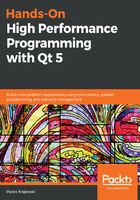
Speculative execution and branch prediction
As long as the pipeline is pumping, everything is OK. But what if we encounter a conditional branch? The pipeline has to wait till the result of the test is known, hence the next instruction can be started only when the current one has finished. Welcome to the pre-80,486 world! This is called a pipeline stall and defeats the whole purpose of pipelining. And because every program is literally dotted with if-then-else clauses, something must be done here.
The solution manufacturers came up with was speculative execution: instead of idling, we just start executing one of the branches speculatively. If we are lucky, we've just done the right thing, but, if not, we discard our speculative work, and we are on even ground with the pipeline stall case. As we decide randomly, we'll be right 50% of the time, and we just seriously increased the throughput of the pipeline!
The only problem is that the branches of the if clause are not equally probable! In most cases, they're even highly unevenly distributed: one of them is the error branch; the other is the normal case branch. But the processor doesn't know the meaning of the test, so what can we do? The solution to that is branch predicting—the processor is learning about branches in your code and can predict which branch will be taken on a given condition rather well.
This got complicated quickly, didn't it? If you're thinking it, you're not alone. Not so long ago, the programming world was shaken by disclosure of the Spectre and Meltdown vulnerabilities, which allowed the attacker to see contents of the memory regions where they don't have access rights. The first part of the exploit's to fool the branch predictor to take the false branch for speculative execution. After the processor sees a disallowed access, the instruction will be retired, but the protected data will be present in the cache, where they can be guessed with some complicated techniques we won't discuss here. These bugs basically put in question the processor optimizations of the last decade, as fixing them would incur meaningful performance losses.
Considering that, we are all rather curious about how CPU architectures evolve next time, aren't we?